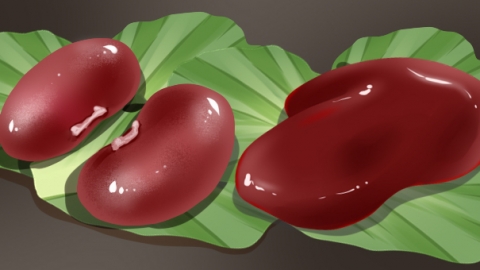What foods should be avoided with high uric acid levels?
Generally, foods to avoid for individuals with high uric acid levels include animal offal, seafood, alcoholic beverages, high-fructose drinks, and concentrated meat broths. The details are as follows:

1. Animal Offal: Such as pig liver, pig kidney, and chicken liver. These foods are extremely high in purines. Once ingested, purines are metabolized into uric acid, causing a sharp increase in blood uric acid levels, increasing metabolic burden, and easily triggering gout attacks.
2. Seafood: Such as shrimp, crab, and shellfish. Most seafood is high in purines. Consumption increases uric acid production, and especially when the body's excretion of uric acid is impaired, it can lead to uric acid deposition, inducing symptoms such as joint pain.
3. Alcoholic Beverages: Including white spirits, beer, and yellow rice wine. Alcohol interferes with uric acid metabolism, reducing its excretion. Additionally, the purines present in beer further increase uric acid production, leading to elevated uric acid levels through a dual effect.
4. High-Fructose Drinks: Such as sugary sodas and fruit-flavored beverages. High fructose intake accelerates purine metabolism, increasing uric acid production. Long-term consumption continuously disrupts uric acid balance, making it difficult to control uric acid levels.
5. Concentrated Meat Broths: Such as pork rib soup and chicken soup. After prolonged simmering of meat, large amounts of purines dissolve into the broth. Consuming this broth leads to excessive purine intake, thereby increasing uric acid concentration and adding metabolic stress to the body.
Individuals with high uric acid levels must strictly avoid the above foods. Daily diet should primarily consist of low-purine, high-water-content foods, while maintaining regular作息 (作息 means作息 schedule/lifestyle here, maybe better to use "regular作息" or "consistent lifestyle") and moderate exercise.





